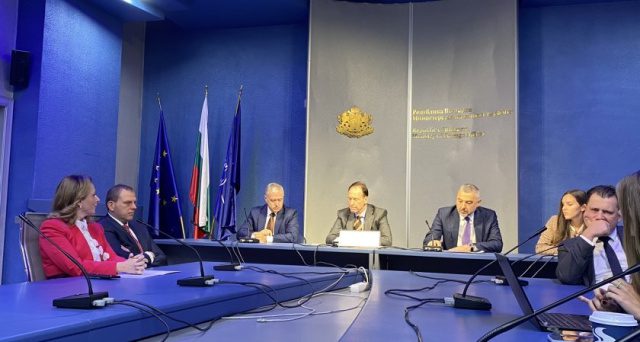
Kostadin Kojabashev, Deputy minister and former ambassador of Bulgaria, shared their views about the partial mobilization and referendums in Donetsk, Luhansk, Kherson and Zaporizhzhia with Ukraine at the regular briefing of the Ministry of Foreign Affairs. He said, “The so-called referendums in the areas of Donetsk, Luhansk, Kherson, and Zaporizhzhia, as well as the partially planned mobilization, is another attempt to make Russia’s invasion of Ukraine legitimate”.
He suggested that the EU and NATO allies must increase their support for Ukraine’s sovereignty and territorial integrity. The referendums announced by Russia in four regions of Ukraine and their results will not be accepted.
Voting has begun in Russian-held Donetsk and Luhansk regions and parts of Ukraine’s Zaporizhzhia and Kherson regions. It will last until September 27.
The Deputy minister discussed many issues about the Russia-Ukraine conflict, but they didn’t share any details about the seventh package of the European Union (EU) sanctions against Russia. After communicating with the Bulgarian ambassador in Moscow, it became clear that there are no Bulgarians who have sought assistance to return to Bulgaria.
He further explained that the Bulgarian government is preparing a mechanism for Russian citizens fleeing from their country due to sanctions on freedom and speech and seeking status in their country.
The Ministry of Foreign Affairs announced that elections could be held abroad during its weekly briefing. International offices have received all bulletins and machines. The voting will take place in 301 locations abroad, which is 539, or 100, more than during the elections in November of last year. The most votes will be cast in Turkey, with 220 voting machines spread across 112 sectors.
In contrast to previous years, the Central Election Commission has already determined that all declarations made following Article 33 will be recognized. The statements confirming that the voter won’t cast a ballot in two different ways must be completed in Bulgarian. These declarations created issues for the sections in Turkey, as some voters found it challenging to manually fill them out in the Bulgarian language.
